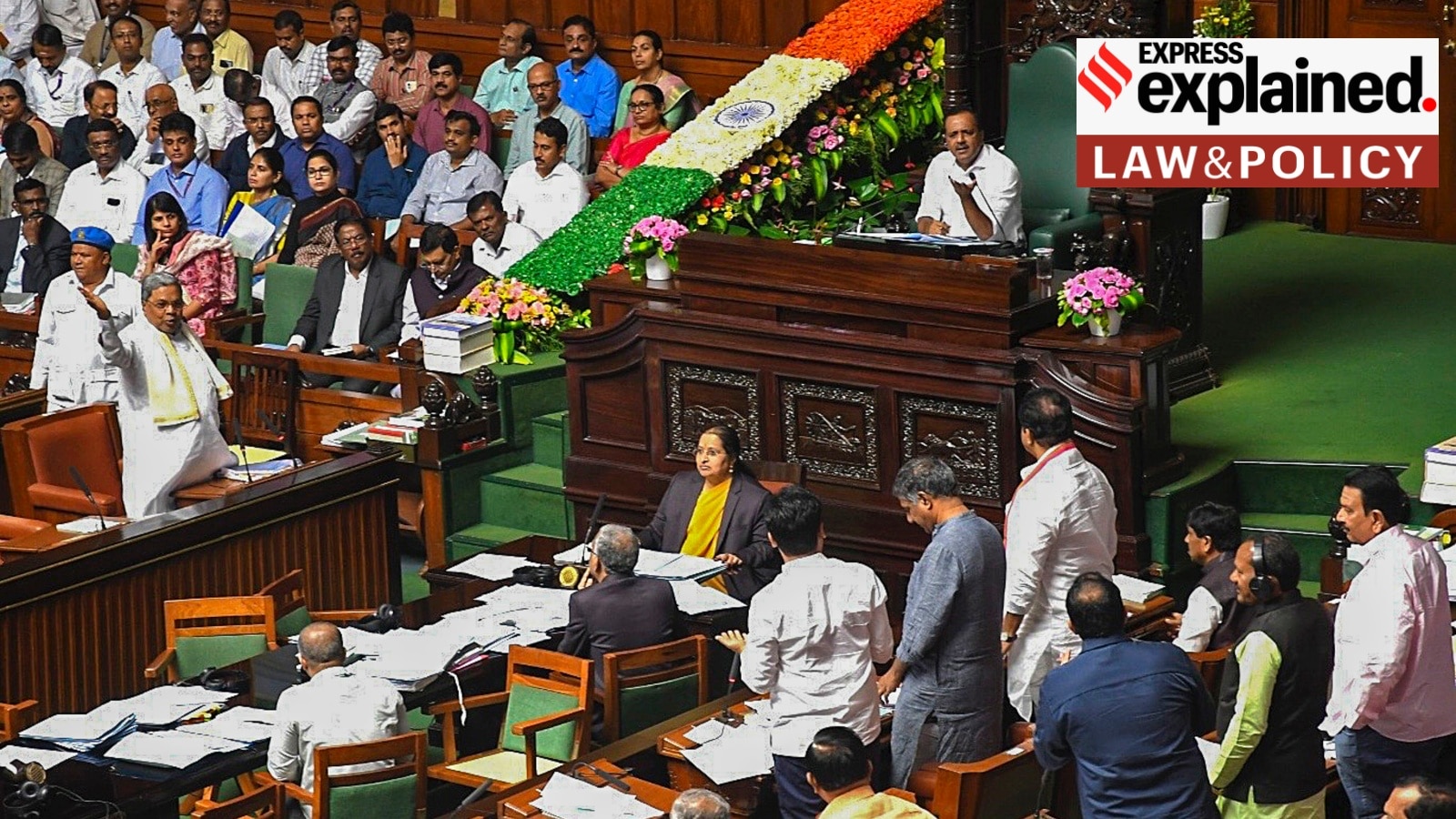On Wednesday (July 17), the Karnataka government approved and then immediately withheld a Bill that would mandate 75% reservation in non-management jobs, and 50% reservation in management jobs for “local candidates” in the private sector.

Constitutional guarantees, and affirmative action
While framing the Constitution, Dr B R Ambedkar envisaged a “common citizenship throughout India, irrespective of the local jurisdiction of the provinces and the Indian States.”
Article 19 reflects this view as it guarantees every citizen’s fundamental right to move freely throughout India; to reside and settle in any part of the country; and to practise any profession, or to carry on any occupation, trade or business.
Separately, Article 15 prescribes that the state “shall not discriminate against any citizen on grounds only of religion, race, caste, sex, place of birth or any of them.” These fundamental rights have no geographical boundaries.
However, it is from this non-discriminatory policy that our affirmative action laws, a hallmark of the Indian Constitution, originate.
Article 16 guarantees equality of opportunity in matters of public employment. Among other aspects, it prohibits discrimination in public employment on grounds “only of religion, race, caste, sex, descent, place of birth, residence or any of them.”
Story continues below this ad
It also carves out the state’s right to frame laws “for the reservation of appointments or posts in favour of any backward class of citizens which, in the opinion of the State, is not adequately represented in the services under the State.” Article 16 also allows the state to prescribe a requirement of residence within that State for public employment. This is not the same as place of birth but only a certain length of residence during or before the employment.
The debate over domicile quota
Any law that prescribes a domicile quota — based on place of residence — will have to be located within these two clauses. Simply put, states will have to prove that there is no adequate representation for those residing in the state or those who have obtained domicile status. This again, is not the same as a ‘sons of the soil’ category but simply those who have lived in the state long enough to become a domicile. There are several ways of acquiring that domicile status, such as proof of continuous stay, proof of birth etc.
The framers of the Constitution were cognisant of competing sub-nationalisms when it came to affirmative action. When some members of the Constituent Assembly called for having a “place of residence” as a criterion for public jobs, Ambedkar opposed the idea.
“It is the feeling of many persons in this House that, since we have established a common citizenship throughout India, irrespective of the local jurisdiction of the provinces and the Indian States, it is only a concomitant thing that residence should not be required for holding a particular post in a particular State because, in so far as you make residence a qualification, you are really subtracting from the value of a common citizenship which we have established by this Constitution or which we propose to establish by this Constitution,” he said.
Story continues below this ad
Ambedkar, however, made a case for limited application of domicile rules. “You cannot allow people who are flying from one province to another, from one State to another… without any connection with that particular province, just to come, apply for posts and, so to say, take the plums and walk away.”
Several states have a linguistic criterion as a workaround to the ‘sons of the soil only’ rule — a working knowledge of the local language as a requirement to take up public jobs. Additionally, Article 371 of the Constitution provides special concessions to several states, allowing relaxed rules for recruitment.
However, several court judgements have highlighted that the remit of Article 16 is for public employment. In fact, the Constitution has no manifest provision which allows states to make laws mandating reservation in the private sector. But states have argued that they can enter into the private sector domain as they provide several concessions for them including tax breaks and cheaper land.
It is to be seen whether this argument will make the cut in court. Given the difficulties in implementing such laws, several governments, both in India and abroad, instead use soft advocacy to ensure more diversity in hiring.
View of the courts
Story continues below this ad
Court rulings on domicile quota have largely involved admissions, elevated criteria in marking, and free structures but not employment, let alone private employment.
One of the early cases — DP Joshi vs The State Of Madhya Bharat — in 1955, dealt with a fee exemption for students of Madhya Bharat. While the court quashed the rule, it did not go into the larger “question as to the existence or admissibility of the concept of regional domicile as distinguished from Indian domicile.”
In the 1970s, Andhra Pradesh brought in a law allowing domicile quota for jobs in the Telangana sector to curb the demand for a separate state. The Supreme Court struck down this law as unconstitutional.
Even in the handful of cases before the SC, it has observed that domicile quotas foster “narrow parochial loyalties fostered by interested parties.” In a 1984 decision, Dr. Pradeep Jain vs Union Of India, the SC said that “when the Constitution came into operation, we took the spirit of nationhood for granted and paid little attention to nourish it, unmindful of the fact that it was a hard-won concept. We allowed `sons of the soil’ demands to develop claiming special treatment on the basis of residence in the concerned State, because recognising and conceding such demands had a populist appeal.”
Story continues below this ad
In 1995, the SC struck down an Andhra Pradesh law that allowed an extra 5% weightage in marks for candidates whose medium of instruction was Telugu.
In 2019, the AP government passed a law similar to the Karnataka Bill. When challenged in court in 2020, the AP High Court made a prima facie observation that the move “might be unconstitutional”. The case is yet to be decided on its merits.
In 2020, Haryana passed a law which reserved 75 % of jobs in the private sector that offered a monthly salary of less than Rs 30,000 (originally Rs 50,000) for residents of Haryana. While the Punjab and Haryana High Court struck down the law as unconstitutional, the state’s appeal is pending before the SC. The case is likely to come up in September.








































